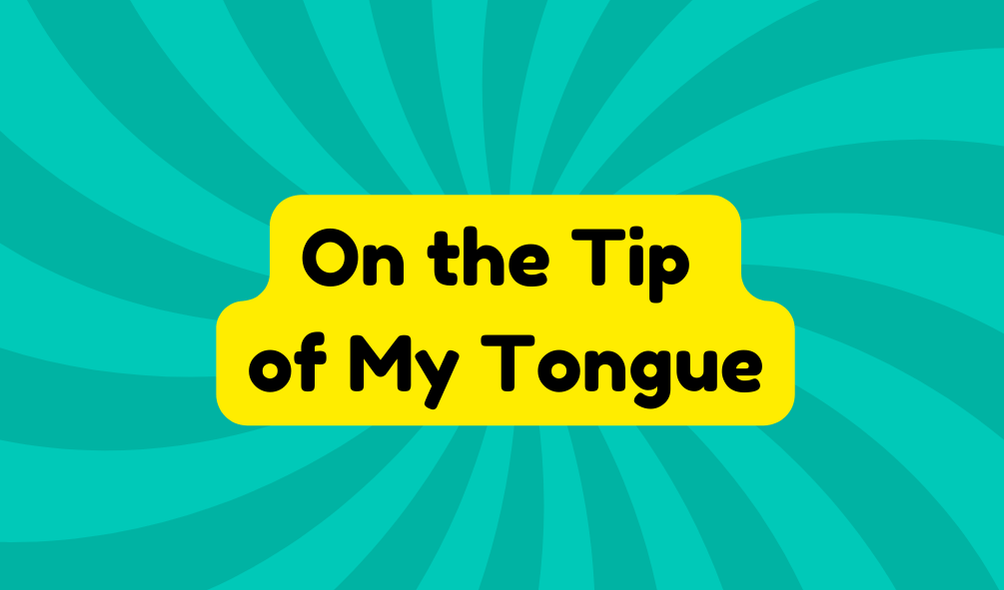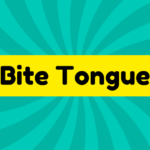The phrase "on the tip of my tongue" describes a prevalent cognitive phenomenon where individuals feel they know something but struggle to express it. This experience highlights the complexities of memory retrieval and language. Often, it reflects fleeting thoughts that remain just out of reach, illustrating our cognitive limits. Common in everyday conversations, such moments can lead to frustration, reminding us of how emotions can impact our ability to communicate clearly. This ongoing struggle reveals insights into memory and language connections. Exploring these aspects further can enhance understanding of our cognitive processes and improve communication skills.
Synonyms
When grappling with the feeling of something being just out of reach in our minds, several synonyms can effectively capture this experience. These terms reflect various facets of linguistic cognition and memory retrieval, illuminating the complex relationship between thought and language. Significantly, three compelling synonyms emerge:
- Elusive: Conveying the idea of something that is difficult to grasp mentally.
- Fleeting: Indicating a momentary thought that slips away just as it surfaces.
- Pending: Suggesting information that is poised to emerge but remains frustratingly unspoken.
While these words may resonate, it is essential to recognize that they also highlight our cognitive limitations. Understanding these synonyms can facilitate deeper engagement with our own memory processes, ultimately aiding in the quest for clearer expression.
Example of Sentences
The phrase "on the tip of my tongue" serves as a vivid illustration of the common experience of struggling to retrieve specific information. This phenomenon not only highlights the complexities of memory retrieval but also engages our cognitive processes. Here are a few example sentences that encapsulate this experience:
- "Her name is on the tip of my tongue, yet it eludes me."
- "His birth date is on the tip of my tongue, just out of reach."
- "A question was on the tip of her tongue, untapped but urgent."
These sentences reflect the frustration and intrigue of our mental landscape, encouraging a deeper examination of how our minds operate when faced with the tantalizing promise of forgotten knowledge.
Origin
While the precise origin of the phrase "on the tip of my tongue" remains uncertain, it is closely tied to the psychological phenomenon known as the Tip of the Tongue (TOT) state. This state encapsulates moments where recall is impeded despite a sense of knowing. Fundamentally, it suggests a gap in memory retrieval, where related information can be partially accessed.
| Characteristics | Description |
|---|---|
| TOT Phenomenon | A common cognitive experience |
| Memory Retrieval | Partial access to stored information |
The phrase illustrates the intricate processes governing language and memory. By exploring this connection, we can achieve greater insights into how our minds function, challenging preconceived notions of effortless recall and highlighting the complexities inherent in everyday communication.
Collocations
Exploring the phrase "on the tip of my tongue" further reveals a variety of collocations that enhance its contextual usage. Understanding these collocations can illuminate current collocation trends and deepen comprehension of idiomatic expressions. Here are three significant collocations:
- Tip of the tongue phenomenon – Referring to the cognitive experience of partial recall.
- On the tip of my fingers – Suggests accessibility to knowledge or information.
- Language on the tip of my tongue – Implies the struggle between thought and verbal expression.
These collocations highlight how intertwined language is with memory and cognition yet remind us that the nuances of communication can be elusive. Consequently, a critical examination of their usage can lead to more effective expression and comprehension.
How to Use in Everyday Language
Using the phrase "on the tip of my tongue" enhances everyday communication by effectively conveying moments of near recall. In everyday scenarios, incorporating this expression may add nuance to conversations, helping articulate lapses in memory without undermining confidence. It subtly shares the experience of forgetfulness, often relatable for many. Employing memory techniques like visualization may also assist in jogging one's memory when this phrase seems appropriate. However, reliance on such expressions can sometimes detract from clear communication, especially if overused. Balancing its use with concise language fosters clarity and innovation. Ultimately, while the phrase enriches dialogue, it should be employed sparingly to maintain its effectiveness and avoid diminishing the impact of genuine recollection.
Why Is It Still Relevant Today?
How does the phrase "on the tip of my tongue" continue to resonate in contemporary communication? This expression encapsulates universal cognitive connections and memory phenomena, reminding us of the intricacies of human recall. As we embrace technology's rapid evolution, understanding these nuances becomes crucial, especially in environments that prioritize information retention and communication clarity.
| Aspect | Significance |
|---|---|
| Cognitive Connections | Reflects the mind's web of ideas |
| Memory Phenomena | Highlights moments of forgetfulness |
| Emotion Influence | Reveals how feelings affect recall |
| Language Development | Affects clarity in communication |
The relevance of this phrase persists, serving as a reminder of our memory's complexities, and the ongoing challenges we face in conveying our thoughts effectively.
Frequently Asked Questions
Why Do We Experience Moments of Tip of the Tongue?
Moments of tip of the tongue arise from challenges in memory retrieval and lexical access. This phenomenon reflects cognitive processes where partial information is accessible, yet complete recall remains impeded, often influenced by emotional states.
Can Stress Affect Tip of the Tongue Occurrences?
Stress triggers often exacerbate memory lapses, hindering cognitive function and increasing instances where information feels just out of reach. Understanding this relationship can foster innovative strategies for enhancing memory retrieval under pressure.
Are Certain Age Groups More Prone to This Phenomenon?
Certain age-related factors contribute to the frequency of this phenomenon; cognitive decline, often observed in older individuals, can exacerbate memory retrieval issues, making them more susceptible to moments where information feels just out of reach.
How Can I Improve My Memory Recall Skills?
To enhance memory recall skills, consider employing innovative memory techniques such as mnemonic devices, visualization strategies, and spaced repetition. These recall strategies not only bolster memory retention but also facilitate more effective information retrieval over time.
Is "Tip of the Tongue" a Universal Phenomenon?
Research indicates that nearly 70% of individuals experience memory retrieval difficulties, highlighting "tip of the tongue" as a near-universal phenomenon. Cross-cultural comparisons reveal intriguing psychological explanations for this cognitive occurrence, enhancing our understanding of memory processes globally.







